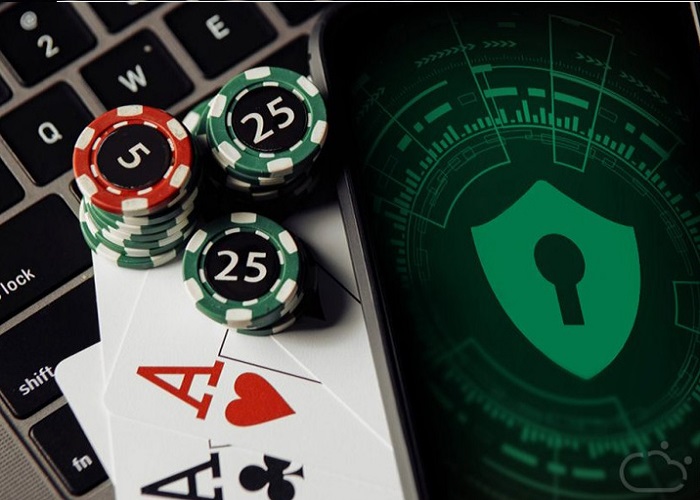The advent of technology has significantly influenced various sectors globally, the gambling industry being no exception. Online casinos have gained substantial traction in recent years, attracting a vast number of players due to their convenience, wide variety of games, and often enticing bonuses. However, this transition to the digital landscape has also brought about various cybersecurity threats that potentially jeopardize the safety of players’ data and financial transactions. This article delves into these concerns and the measures in place to ensure a secure online betting environment.
Online casinos have leveraged these technological advancements to create platforms where players can participate in various games at their leisure. These digital gambling platforms offer a myriad of benefits. They provide unparalleled convenience, allowing users to gamble at any time and from any location. They also offer a wider variety of games, including poker, roulette, slots, and live dealer games, compared to traditional brick-and-mortar casinos.
However, with this digitization comes a new array of challenges, predominantly concerning cybersecurity. The online environment’s inherent vulnerability to various threats, such as data breaches, Distributed Denial-of-Service (DDoS) attacks, and malware, raises important questions about how to gamble safely in these digital arenas.
The Rise of Online Casinos
The proliferation of the internet, coupled with advancements in mobile technology, has resulted in a surge of online casinos worldwide. These platforms offer a plethora of games, including poker, roulette, slots, and live dealer games, which can be accessed and played remotely.
They also provide a myriad of benefits, such as the ability to play at any time and from any location, enticing bonuses, a variety of payment options, and the opportunity to participate in international gambling tournaments.
Cybersecurity Threats in Online Casinos
- Data Breaches
Online casinos collect various personal and financial data from their users, such as names, addresses, credit card numbers, and bank account details. This information can be a prime target for cybercriminals, who might attempt to steal this data for malicious purposes, such as identity theft and fraudulent activities.
- DDoS Attacks
Distributed Denial-of-Service (DDoS) attacks are another prevalent threat in the online casino industry. These attacks involve overwhelming a website’s server with traffic, causing it to slow down or crash. In the case of online casinos, this can lead to significant financial losses, both for the casino operators and the players.
- Malware
Malware, or malicious software, represents another security risk for online casinos. Hackers can embed malware into downloadable casino software, potentially leading to data theft or damage to the user’s device.
Deep-Dive Into Cybersecurity Risk Mitigation Strategies
The cybersecurity risks that plague online casinos have led to the development and adoption of various proactive and reactive strategies aimed at safeguarding user data and financial transactions. These techniques include encryption, multi-factor authentication, independent audits, and adherence to licensing regulations, among others.
Use of Secure Sockets Layer (SSL) Encryption
SSL encryption has become the de-facto standard for protecting data transmission between the user’s browser and the online casino server. This technology uses complex algorithms to encrypt data in transit, turning it into an unreadable format that can only be decrypted using a unique key.
Essentially, even if a cybercriminal were to intercept the communication, they wouldn’t be able to decipher the content without the decryption key. SSL encryption is vital for protecting sensitive player data like personal identification details, payment information, and other private data from prying eyes.
Implementation of Two-Factor Authentication (2FA)
Two-Factor Authentication (2FA) represents an additional layer of security that goes beyond traditional username-password combinations. The concept behind 2FA is simple but effective; it requires users to verify their identity using two distinct factors before granting account access.
The two factors typically include something the user knows (like a password) and something they possess (like a smartphone to receive a one-time passcode). In some advanced cases, biometric identification such as fingerprints, facial recognition, or voice recognition is used, providing an extra layer of security. By doing so, 2FA ensures that even if a user’s password is compromised, unauthorized individuals can’t gain access without passing the second level of verification.
Rigorous Audits by Independent Bodies
The role of independent auditing bodies is indispensable in the online casino industry. These third-party organizations perform comprehensive audits to assess an online casino’s adherence to industry standards and fair gaming practices. This process often involves an in-depth analysis of the casino’s random number generator (RNG) to verify that game outcomes are indeed random and not rigged in any way.
In addition, these audits assess how the online casino protects user data and how effectively it implements its declared security policies. A seal of approval from a respected auditing firm provides reassurance to players that the casino is operating legitimately and that their data is safe.
Adherence to Licensing Regulations
Finally, for an online casino to operate legally and assure players of its credibility, it must hold a valid license from a recognized gambling authority. These licenses are not granted lightly; obtaining one requires the casino to meet rigorous standards, particularly in relation to fair play and cybersecurity.
When a casino displays a licensing badge from an authority such as the UK Gambling Commission, Malta Gaming Authority, or Gibraltar Regulatory Authority, it signifies the platform’s commitment to maintaining high security and fair play standards.
By enforcing these cybersecurity measures, online casinos can significantly reduce the risks associated with cyber threats. However, it’s crucial for players to take personal responsibility for their online safety by ensuring they only engage with licensed and audited casinos that implement robust cybersecurity measures.
The Integral Role of AI in Strengthening Online Casino Security
Artificial Intelligence (AI) has become an invaluable tool in enhancing cybersecurity within the online casino landscape. AI technologies, specifically machine learning algorithms, contribute significantly to recognizing unusual patterns that can indicate fraud or potential cyberattacks. Let’s explore some specific applications of AI in bolstering online casino security.
Machine Learning for Fraud Detection
Machine learning, a subset of AI, can be used to identify potential fraudulent activities within the online gambling platform. It works by analyzing user behavior and transaction patterns over time and learning what constitutes normal activity. If an action or transaction deviates significantly from this norm, the system flags it for further investigation.
For instance, a user making a series of unusually high deposits in a short period or a sudden increase in the frequency of logins from various locations could trigger the system. This proactive detection allows the casino to take immediate action, which may include temporarily suspending the user’s account and notifying them about the possible breach.
AI for Real-time DDoS Prevention
Another application of AI is in preventing Distributed Denial-of-Service (DDoS) attacks. AI algorithms can monitor incoming network traffic in real time and use pattern recognition to identify potential DDoS attacks before they affect the platform’s performance. This early detection can help minimize downtime and prevent potential financial losses for both the operator and the players.
Natural Language Processing for Customer Support
Beyond traditional security measures, AI in the form of Natural Language Processing (NLP) can provide an additional level of customer support. NLP can power chatbots that offer round-the-clock customer service, ensuring users get immediate assistance in case of any security concerns or issues.
Moreover, these AI-driven chatbots can identify possible security threats in user conversations, alerting the security team to take necessary measures. For instance, if a user mentions that their account has been hacked, the chatbot can immediately notify the security team and temporarily suspend the account to prevent further damage.
Conclusion
While online casinos provide an avenue for entertainment and potential financial gain, their rise has undoubtedly come with increased cybersecurity threats. However, through a combination of robust security measures, regular audits, and the use of AI, online casinos can mitigate these risks and provide a safe and secure betting environment. As players, it is crucial to patronize only licensed and regularly audited online casinos that prioritize cybersecurity and data protection.



